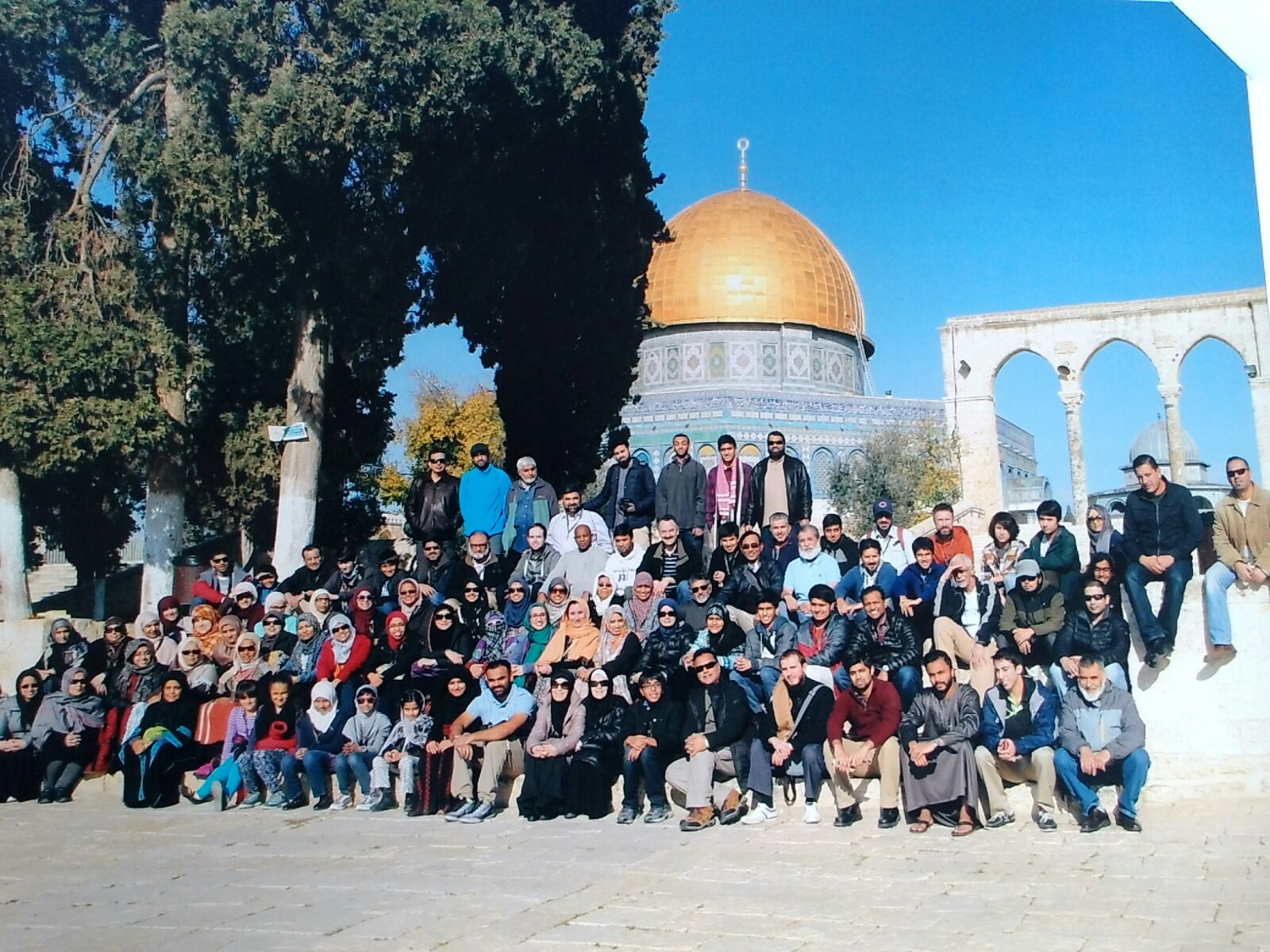U.S. hajj operators diversify into Muslim heritage tours as quotas drive up competition
Photo: One of Dar El Salam's umrah packages in 2015 included a visit to Jerusalem / Courtesy Dar El Salam Islamic World Travel
During the 2012 hajj season, the New York City-based Dar El Salam Travel Company had an emergency. Its clients had completed their pilgrimage and were ready to return home when Hurricane Sandy struck the East Coast of the United States. All flights were cancelled and the group was stranded in Saudi Arabia.
Dar El Salam managers moved swiftly to provide accommodation at the company's expense until flights were restored. "It was the right thing to do," said Azhar Zaidi, a manager at Dar El Salam.
BIG BUSINESS
Providing hajj and umrah tour packages is a big business in the United States. An estimated 70 percent of the 2.5 million pilgrims performing hajj each season are foreigners, and on average U.S. Muslims account for up to 15,000 pilgrims every year. They each spend upwards of $6,500 for a trip.
U.S. hajj and umrah tour companies build their customer base by doing little things to make sure their clients have everything they need to complete their religious obligations.
They also have the challenge of providing extra services to American Muslims who are unfamiliar with Saudi culture and the rituals they are expected to perform. Many tour packages include classes, seminars, online instruction and, finally, a community religious leader to accompany them on their pilgrimage.
Each operator, however, must be approved by the Saudi Ministry of Hajj to provide complete tour services, and there are quotas. Each company is allowed an average of 140 to 150 pilgrims until the quotas are lifted, which is expected to happen in the next year.
Virtually all American tour companies fill their quotas. "Our quota is 150, but we turn away hundreds of people after it's filled," said Soha Amin, a manager for Sama Tours in Anaheim, California. "We are hoping the quotas will be lifted soon."
A coveted spot on the Ministry of Hajj's approved operator list means a high volume of pilgrims, especially during the umrah season, which has no quota. Most tour companies promote luxury packages that include travel, accommodation in five-star hotels, all meals and a guide to provide spiritual and practical guidance.
Hajj packages start from about $6,500 for basic services, including travel between the holy cities of Mecca and Medina, and go up to $16,000 for luxury plans that offer high-end hotel accommodation next to Masjid al-Haram with a view of the Ka’aba.
| The hajj is Saudi Arabia's biggest tourism revenue generator, and in 2014 the country made about $8.5 billion during the pilgrimage. |
RELATED Muslim heritage tours take travelers back in time to Islam's Golden Age Muslim cruises setting sail towards a $1.6 bln business opportunity |
DIVERSIFYING
The quota system for the hajj means lost profits for North American operators, but agents are exploring new revenue-generating options.
Zaidi said Dar El Salam's hajj, umrah and Ramadan packages have become so popular that the company in 2015 started offering tours for American Muslims to other countries, including China, Malaysia, and Turkey, where travelers can also visit Muslim heritage sites.
The trips are organized to be combined with the umrah package, although separate plans are available for tourists taking advantage of the Christmas or spring breaks, he said
"We offer the usual sites in China, like visiting the Great Wall and Tiananmen Square, but we also take our clients to the oldest mosque, where they can pray," Zaidi said. "We then provide them with a halal meal."
Zaidi said that his company now also offers conventional tours such as ship cruises to Alaska. The agent arranges with the cruise ship to provide halal meals, set aside a stateroom for prayers and perhaps include a spiritual or religious guide.
Expanded halal-themed services are relatively new to North American tour companies that were previously offering only hajj and umrah services, but that is expected to change as many operators hope to build and promote Muslim heritage and religious tourism.
"The competition is fierce," Zaidi said.
© Copyright SalaamGateway.com 2016

Rob L. Wagner